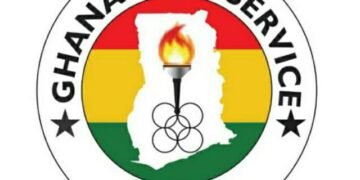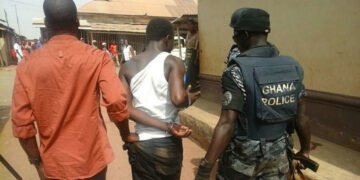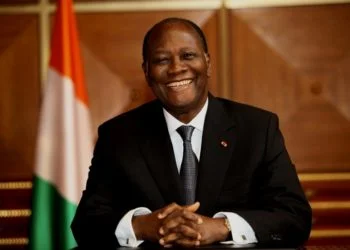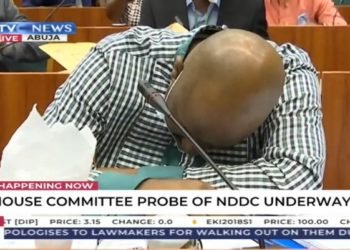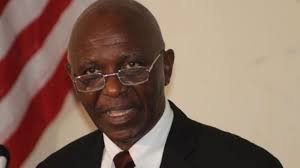The prime minister of the southern African kingdom of Lesotho has fled to South Africa, alleging a coup by the army and saying his life is in danger.
Speaking to the BBC, Thomas Thabane said he would return from South Africa, which surrounds Lesotho, “as soon as I know I am not going to get killed”.
Reports say the capital, Maseru, is now calm after soldiers seized buildings. The army denied staging a coup.
Lesotho has seen a series of military coups since independence in 1966.
Mr Thabane has headed a unity government since, but suspended parliament sessions in June amid feuding in his coalition.
He denied accusations that his actions had undermined his government.

‘Illegal coup’
Mr Thabane said the army had rendered the government “dysfunctional”, an action that amounted to a coup.
“I have been removed from control not by the people but by the armed forces, and that is illegal,” he told the BBC’s Newshour programme.
“I came into South Africa this morning and I will return as soon as my life is not in danger. I will not go back to Lesotho to get killed.”
South Africa’s government described the situation as “worrying”, with spokesman Clayson Monyela saying the country would not tolerate “unconstitutional change of government”.
At the scene: Basildon Peta, Maseru, Lesotho
This whole thing started around 03:00. There were gunshots since early morning. The city is currently calm. People are playing it safe within their homes, but there is basically a media blackout.
To all intents and purposes it is a military coup with the aim of ousting the prime minister. There can be no other reason of soldiers behaving the way they have been behaving other than to seize power.
So far we have no reports of killings. It would be correct to call it a bloodless coup attempt. But I am not going to stick around. The chances are the situation may deteriorate. One does not know what is going to happen.
Basildon Peta is the publisher of the Lesotho Times
The army is understood to have acted after the prime minister attempted to remove its chief, Lt Gen Kennedy Tlai Kamoli.
The army said the general was still charge, saying the military “supports the democratically elected government of the day,” Reuters news agency reported.
A spokesman, Maj Ntlele Ntoi, denied staging a coup, saying: “There is nothing like that, the situation has returned to normalcy… the military has returned to their barracks.”
Earlier, troops were seen on the streets of Maseru and there were reports of gunfire.
Radio stations were taken off air and phone lines were cut, although later reports suggested they were working again.
Sports Minister Thesele Maseribane told the AFP news agency that troops had surrounded State House, a key government building.



